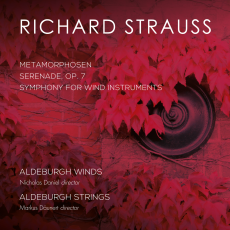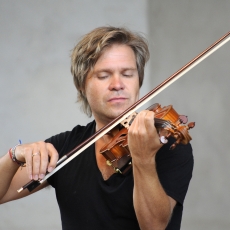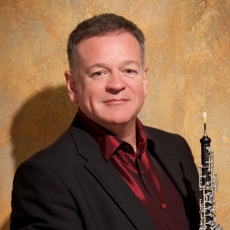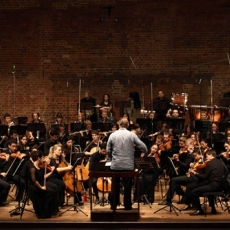Aldeburgh Strings and Winds - R. Strauss: Metamorphosen - All Music
Richard Strauss' Metamorphosen is curiously titled; its various chunks of thematic material are developed in the usual way rather than undergoing something identifiable as a metamorphosis, and the work is deeply elegiac in nature. The work was composed at the end of World War II, and various entities have been proposed as the subject of its funereal mood: the war dead, German culture, destroyed German and Austrian opera houses, the Nazi regime, Beethoven (several of whose works are seemingly quoted), and, most controversially, Hitler himself, although he did not commit suicide until after it was completed. Whatever the case, the work makes strong demands on performers. It is written for a string orchestra of ten violins, five violas, five cellos, and three double basses, often not treated as sections, and within a large, three-part structure it moves in large, wave-like gestures that may go on for several minutes. This version by England's youthful Aldeburgh Strings under Markus Däunert is rather reserved, but holds the work together coherently. Another attractive feature of the album is that it offers early and late Strauss together (as well as the Britten-Pears Aldeburgh Strings and Aldeburgh Winds projects together): the Metamorphosen are followed by one of Strauss' earliest works, the Serenade for winds in E flat major, Op. 7, of 1881. Sample this and be alert for the little dissonances the teenage Strauss pastes everywhere onto the basically Classical harmonies. The Symphony for Wind Instruments "Fröliche Werkstatt" of 1946 looks back on the composer's lifelong fascination with Mozart in a different way. Linn's sound from Snape Maltings is excellent, allowing the dense Metamorphosen room to breathe, and this is generally a fine Strauss chamber release.



